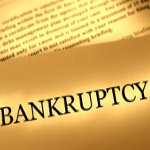Supreme Court’s Discharge Exception Ruling Gives Creditors More Options
 The U.S. Supreme Court recently determined that the nondischargeability of debts under 11 U.S.C. § 523(a)(2)(A), which prohibits discharge of debts “obtained by . . . false pretenses, a false representation, or actual fraud,” does not require a false representation, reports Brian Hockett of Thompson Coburn in an article posted on JDSupra.com.
The U.S. Supreme Court recently determined that the nondischargeability of debts under 11 U.S.C. § 523(a)(2)(A), which prohibits discharge of debts “obtained by . . . false pretenses, a false representation, or actual fraud,” does not require a false representation, reports Brian Hockett of Thompson Coburn in an article posted on JDSupra.com.
His article says the “actual fraud” exception to a bankruptcy discharge includes other traditional forms of fraud, including fraudulent conveyances that do not necessarily include a representation by the debtor or reliance by the creditor.
“This important decision by the Supreme Court resolves a split among lower courts and opens up potential additional opportunities for creditors to pursue nondischargeability actions under 11 U.S.C. § 523(a)(2)(A),” Hockett writes.